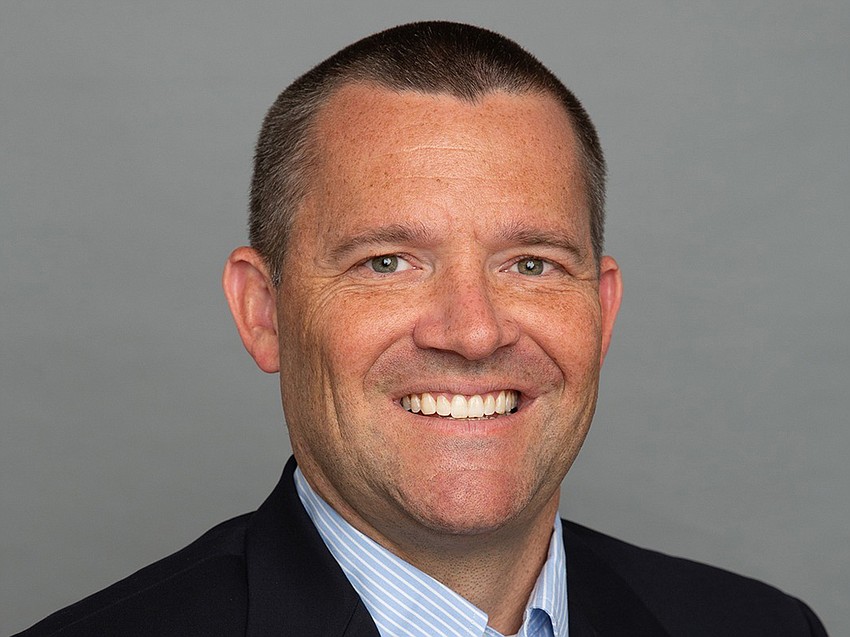
Kansas City Star headline: ‘Beat the billionaire Goliath’: Opponents of Chiefs, Royals tax rejoice at vote outcome.
Tampa Bay Times headline: One thing St. Petersburg Democrats, GOP agree on: No to Rays stadium deal.
Rochester (New York) Democrat and Chronicle headline: New York Buffalo Bills stadium deal divides fans and officials.
Stadium deals often face harsh turbulence, but the proposed stadium agreement between the city of Jacksonville and the Jacksonville Jaguars has generally been an exception.
A series of community “huddle” meetings drew concerns from participants, including several who pressed for a public referendum on the issue, but there’s been no organized opposition to the plan.
Key decision-makers from both parties, including Democratic Mayor Donna Deegan and Republican City Council President Ron Salem, say they’re hopeful that the agreement for the $1.4 billion project can be finalized quickly.

A poll showed that a majority of respondents favored the deal on condition that it include a proposed community benefits agreement that would bolster the Eastside neighborhood and beyond.
But as Council begins the delving into the deal, a political fight is simmering over one of its components.
With the approval process expected to start June 11 with the introduction of legislation on the package of nine separate agreements that make up the deal, here’s a look at the community benefits agreement and why it is a point of friction in a process that otherwise has been smooth.
The basics
The agreement calls for the team and city to each contribute $150 million, with the city’s funding for workforce development, affordable housing and homelessness services in the Eastside ($30 million) and countywide ($50 million); development of riverfront parks ($56 million); and projects in each of the 14 Council districts ($1 million apiece, for $14 million.)
The city’s funding would be front-loaded into the first two years of the agreement, while the Jaguars would contribute $5 million per year for 30 years.
It would be the largest community benefits deal in NFL history, with the team’s portion of it alone surpassing the combined team contributions for stadium deals in Buffalo, New York ($100 million) and Nashville, Tennessee ($48 million).
Mayor Donna Deegan says that without the city’s commitment, the Jaguars would likely put up $100 million over 30 years, which is the amount the team first offered in negotiations.
Public support
In a poll by the University of North Florida Public Opinion Research Lab, 56% of respondents said they supported the stadium agreement with the community benefits plan attached.
In response to a question about the stadium-only portion of the plan, which calls for the city to invest $775 million in public funds, 41% were in support.
Asked whether they would support the community benefits agreement itself, 81% responded yes.
The JAX Chamber and Jacksonville Civic Council have publicly endorsed the full package, including the community benefits agreement, as has former Jaguars owner Wayne Weaver. Deegan has signaled that former mayors John Peyton and John Delaney also planned to support the deal.
Pushback
Among decision-makers, Council member Rory Diamond has been the most vocal critic of the benefits agreement. When it was rolled out, he stated in an X post that it was a “non-starter, and Council will remove it.”

Diamond has called the city’s portion “totally unnecessary spending” and has described the UNF poll as “total garbage because it didn’t ask the honest questions.”
“If you asked Jax tax payers if they wanted $100 million from Jags for free or $150 million but it costs $150 million of their money, they are taking the free money every time,” he posted on X.
Other Council members have expressed concerns over the agreement. Member Will Lahnen questioned what effect it would have on the city’s budget and indebtedness.

Salem and Council member Nick Howland have questions whether the city’s proposed expenditures should be handled during the budget process.
Salem says he hoped the Council could approve the full deal June 25, but would prioritize the components that deal with stadium construction.
Deegan’s position
During a June 6 appearance on the WJCT Public Media talk show “First Coast Connect,” Deegan likened the city’s portion of the agreement to investments made by Tampa Bay in 2008-09 to transform its riverwalk and revitalize its core.
“We have the opportunity to become the city we say we want to be, and we need to put our money where our mouth is,” she said.
Deegan said a revamped stadium alone wouldn’t yield progress in revitalizing Downtown and addressing community needs elsewhere.
As for Diamond’s argument about investing $150 million to secure an additional $50 million from the team, Deegan said the extra funding was worth it.
“We’re going to leave $50 million on the table from the Jaguars and not attend to important issues in our city at the same time?” she said.
Without the city funding, she said, the city would have no guarantee of where the Jaguars would direct their funding.
“They’re most interested in investing in the Eastside, and that doesn’t really have the impact on the rest of the community that we’d like to have,” she said.